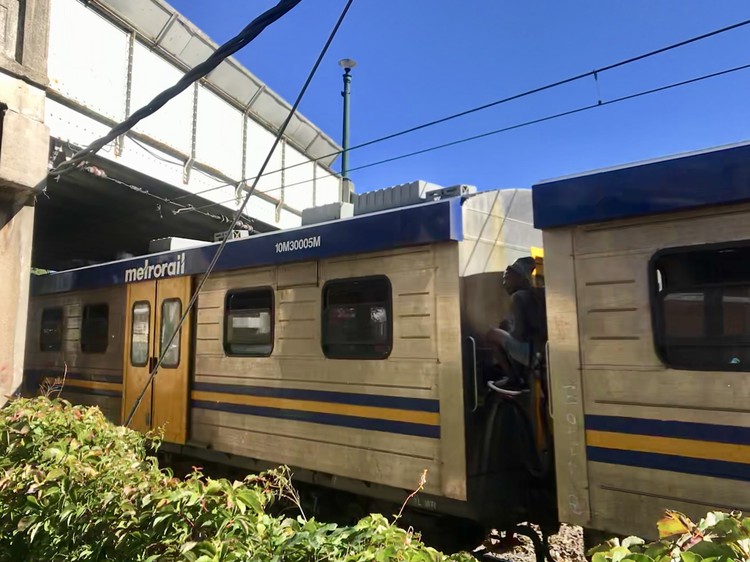Three PRASA executives were sacked for poor performance. Now the rail agency is bringing them back
But PRASA is appealing the Labour Court’s order to reinstate three executives
Executives fired by the Passenger Rail Agency of South Africa will return to work after the courts ordered them reinstated. Photo: Brent Meersman
- The Johannesburg Labour Court ordered, by agreement, that three dismissed PRASA executives resume work on 15 March.
- They were fired, in February, because they “performed below par” according to the PRASA chairperson.
- Pearl Munthali, CEO of the PRASA Development Foundation, will also be returning to work after a court ruled that her dismissal was unlawful.
- She was was fired in January, as were Martha Ngoye, Nkosinathi Khena and Tiro Holele. The Labour Court has (in two separate decisions) ordered all of them to be reinstated, but PRASA said it will appeal the decision for Ngoye, Khena and Holele.
- As a result, on Tuesday Ngoye, Khena, and Holele applied to the Johannesburg Labour Court to compel PRASA to abide by the order.
Recently the Passenger Rail Agency of South Africa (PRASA) purged a number of its executives. But many of those fired have returned to work after the courts ordered them reinstated.
On Tuesday, the Johannesburg Labour Court ordered, by agreement reached between the parties, that Hishaam Emeran (CEO of PRASA Tech), Tebogo Rakau (Chief Security Officer) and Nosipho Damasane (CEO of PRASA Rail) resume work on 15 March.
On 19 February, PRASA Chairperson Leonard Ramatlakane announced that the three executives, along with Group Company Secretary Sandile Dlamini, had been fired after an assessment found that they had “performed below par”. According to the statement, this was done “following a due process”.
The assessment was done by then Acting Group CEO Thandeka Mabija, and the decision to sack the executives was recommended by the Board’s Human Capital and Remuneration Committee (chaired by board member Smanga Sethene), and approved by the board on 17 February.
But weeks later, PRASA had to return the executives to their positions, with all benefits from the date of their termination, and with nearly all their legal costs paid (including costs of counsel).
Also returning to PRASA is Pearl Munthali, CEO of the PRASA Development Foundation. Munthali was fired on 28 January alongside Martha Ngoye and Nkosinathi Khena. On 25 February, she won her Johannesburg Labour Court application in a scathing ruling by Judge Edwin Tlhotlhalemaje. On 8 March, Munthali was served with a letter returning her to her position, resuming on 15 March.
However no such notices have been served to Ngoye, Khena, and Tiro Holele. This trio also won their cases against PRASA in a separate application heard by Acting Judge Moses Baloyi in the Johannesburg Labour Court on 2 March. Theirs and Munthali’s cases relied on the same grounds to appeal their dismissals, namely that PRASA fired them unlawfully.
Instead, also on 2 March, Ramatlakane released a statement announcing that PRASA would be appealing the judgment that found in favour of Ngoye, Khena, and Holele, as it was “flawed in law”. At the time of writing PRASA has not yet filed this appeal, nor has it returned the three to work.
As a result, on Tuesday 9 March, Ngoye, Khena, and Holele applied to the Johannesburg Labour Court to order PRASA to abide by Acting Judge Baloyi’s ruling.
We wrote to PRASA on Wednesday morning asking why the rail agency was appealing the Ngoye, Khena and Holele judgment but not the Munthali judgment, since both judgments were decided on effectively the same grounds.
We also inquired about the executives who were sacked for poor performance and who were also returned to work, asking what had changed that made their performance now acceptable.
This article will be updated once a response arrives.
Support independent journalism
Donate using Payfast

Don't miss out on the latest news
We respect your privacy, and promise we won't spam you.
Next: NPA says there is insufficient evidence to prosecute students arrested during protests
Previous: Where will the children play? Masiphumelele youths disrupt housing project
© 2021 GroundUp. This article is licensed under a Creative Commons Attribution-NoDerivatives 4.0 International License.
You may republish this article, so long as you credit the authors and GroundUp, and do not change the text. Please include a link back to the original article.
We put an invisible pixel in the article so that we can count traffic to republishers. All analytics tools are solely on our servers. We do not give our logs to any third party. Logs are deleted after two weeks. We do not use any IP address identifying information except to count regional traffic. We are solely interested in counting hits, not tracking users. If you republish, please do not delete the invisible pixel.

